
Tangerine Dream is a German electronic music band founded in 1967 by Edgar Froese. The group has seen many personnel changes over the years, with Froese the only constant member until his death in January 2015. The best-known lineup of the group was its mid-1970s trio of Froese, Christopher Franke, and Peter Baumann. In 1979, Johannes Schmoelling replaced Baumann until his own departure in 1985. This lineup was notable for composing many movie soundtracks. Since Froese's death in 2015, the group has been under the leadership of Thorsten Quaeschning. Quaeschning is Froese's chosen successor and is currently the longest-serving band member, having joined in 2005. Quaeschning is currently joined by violinist Hoshiko Yamane who joined in 2011 and Paul Frick who joined in 2020. Prior to this Quaeschning and Yamane performed with Ulrich Schnauss from 2014 to 2020. Schnauss only played two shows with Froese in November 2014 before Froese's passing.

Edgar Willmar Froese was a German musical artist and electronic music pioneer, best known for founding the electronic music group Tangerine Dream in 1967. Froese was the only continuous member of the group until his death. Although his solo and group recordings prior to 2003 name him as "Edgar Froese", his later solo albums bear the name "Edgar W. Froese".
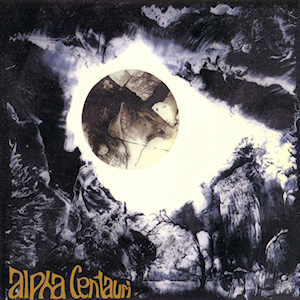
Alpha Centauri is the second studio album by German electronic music group Tangerine Dream. It was released in March 1971 by record label Ohr.

Zeit is the third studio album by German electronic music group Tangerine Dream. A double LP, it was released in August 1972, being the first release featuring Peter Baumann, who joined then-current members Christopher Franke and Edgar Froese. Zeit is subtitled Largo in Four Movements.
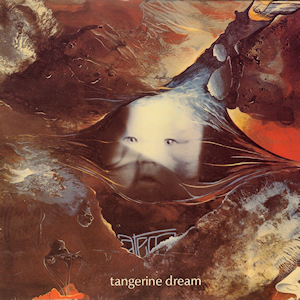
Atem is the fourth studio album by German electronic music group Tangerine Dream. It was released in March 1973 by record label Ohr.
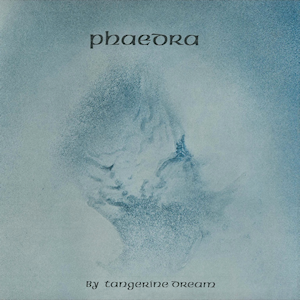
Phaedra is the fifth studio album by German electronic music group Tangerine Dream. It was recorded during November 1973 at The Manor in Shipton-on-Cherwell, England and released on 20 February 1974 through Virgin Records. This is the first Tangerine Dream album to feature their now classic sequencer-driven sound, which is considered to have greatly influenced the Berlin School genre.
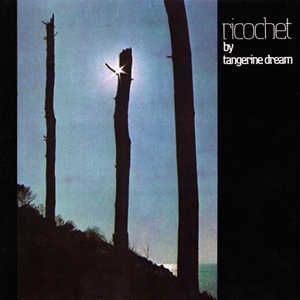
Ricochet is the seventh major release and first live album by the German electronic music group Tangerine Dream. It was released, on the Virgin label, in 1975. It consists of two side-long compositions mixed from studio recordings and the UK portion of their August–October 1975 European Tour. The sound of the album is similar to that of the group's other "Virgin Years" releases, relying heavily on synthesizers and sequencers to produce a dense, ambient soundscape, but is much more energetic than their previous works. Ricochet uses more percussion and electric guitar than its predecessors Phaedra and Rubycon, and borders on electronic rock. The main innovation on the album is the use of complex, multi-layered rhythms, foreshadowing the band's own direction in the 1980s and trance music and similar genres of electronic dance music.

Rubycon is the sixth studio album by German electronic music group Tangerine Dream. It was released in 1975. It is widely regarded as one of their best albums. Rubycon further develops the Berlin School sequencer-based sound they ushered in with the title track from Phaedra.

Stratosfear is the seventh studio album by the German group Tangerine Dream.

Force Majeure is the ninth studio album by the German group Tangerine Dream. It was originally issued on transparent vinyl. Following Stratosfear, the album developed Tangerine Dream's further evolution toward the more melodic sound they would adopt in the 1980s, with a heavier presence of guitars, drums and distinct musical suites in the tradition of progressive rock, rather than the band's 1970s output of Berlin School.
Jerome Froese is a German musician who, in 1990, officially joined his father Edgar Froese in the band Tangerine Dream. He remained a member until 2006. Prior to his direct involvement in Tangerine Dream, Froese often appeared on the covers of the band's albums as a child, beginning with the 1973 release of Atem, when he was two years four months old at the time the album was released.

The electronic music group Tangerine Dream has released more than three hundred albums, singles, EPs and compilations since the group was formed in 1967.
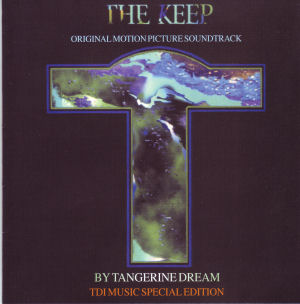
The Keep (1997) is the twenty-third soundtrack album by Tangerine Dream and their fifty-eighth overall. It is the soundtrack to the movie The Keep (1983). A limited run of 150 CDs were sold at a concert by the group in the UK in 1997. Virgin soon announced that the album would be available for general release in early 1998, but legal issues with the film studio stopped the release. In 1999, Tangerine Dream's own record label sold 300 copies of the Millennium Booster album set that included The Keep with a different cover.

220 Volt Live is the forty-eighth release and seventh live album by Tangerine Dream. It was recorded live in the US in 1992. It would be the last live album to feature new compositions until Inferno (2002). This may be considered some of the band's most rock oriented music so far, with guitarist Zlatko Perica's playing being a more prominent element. Re-issued in 1999 and then again in 2009 on Membran. It was nominated for Best New Age Album at the 1994 Grammy Awards.

Johannes Schmoelling is a German musician and keyboard artist. He was a member of the prolific electronic music group Tangerine Dream from 1979 to 1985.

Canyon Dreams is the fortieth major release and it was released as the fourteenth soundtrack album by German band Tangerine Dream. It was recorded in 1986 and released in 1991 on compact disc and compact cassette formats. The music was written as a sound accompaniment for an eponymous scenic video film about the Grand Canyon by Jan Nickman, released by the record label Miramar in 1987 on VHS, Betamax and LaserDisc. The album's tracks are divided into various episodes and related to the titles of the cuts.
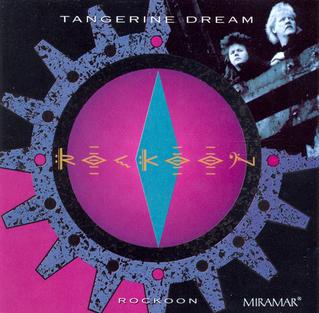
Rockoon is the forty-fourth major release and twenty-first studio album released by Tangerine Dream. The album was started in March 1991 and completed January 1992, making it the longest production ever in the band's history until the release of Quantum Gate in 2017. The album was nominated in the US for the "Best New Age Album 1992" Grammy and reached the Top Ten in Billboard New Age charts and the Top Twenty in Billboard Jazz charts.

Turn of the Tides is the forty-ninth release and twenty-second major studio album by the band Tangerine Dream. It is the first studio album to feature saxophone player Linda Spa and guitarist Zlatko Perica performing as full-time members. It was nominated for Best New Age Album at the 1995 Grammys.
Tangerine Dream bootleg recordings are performances by Tangerine Dream that have attained some level of public circulation without being available as a legal release. The term most often refers to audio recordings, but also includes video performances. Bootleg recordings arise from a multitude of sources, including covertly copied live concerts, studio outtakes, broadcast performances. Some bootlegs have included material from official releases.

Ambient Monkeys subtitled is the fifty-ninth release by Tangerine Dream.


















